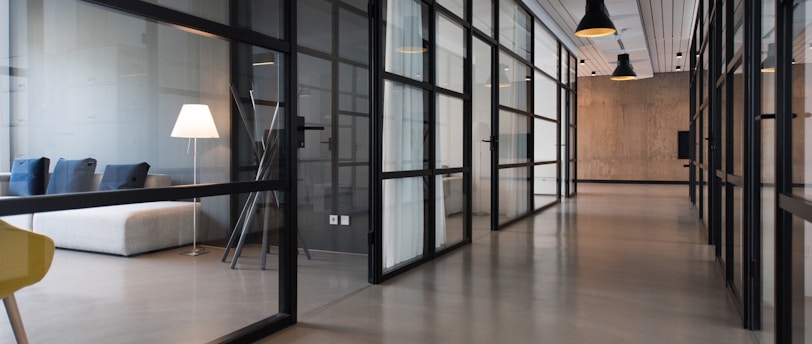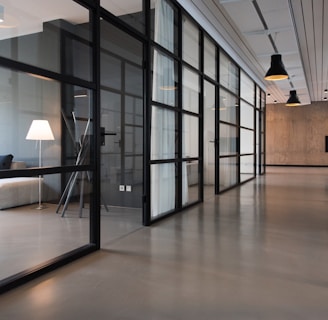Is it Better to Rent or Buy Office Space? A Complete Guide for Business Owners
Is it better to rent or buy office space? Discover the pros and cons of both options, cost comparisons, and expert tips to help business owners make the right decision for growth and stability.
BUSINESS


Is it Better to Rent or Buy Office Space? A Complete Guide for Business Owners
When growing a business, one of the biggest decisions you’ll face is whether to rent or buy office space. Both options come with unique advantages and challenges, and the right choice depends on your company’s financial situation, growth plans, and long-term goals. In this guide, we’ll break down the pros and cons of each option, explore cost factors, and help you determine what’s best for your business.
Introduction to Office Space Decisions
Every business eventually faces the question of where to set up shop. For some, renting offers flexibility, while others see buying as a smart long-term investment. The decision isn’t one-size-fits-all—it depends on factors like cash flow, market conditions, and whether your business needs may change in the near future.
Understanding the Basics of Renting vs. Buying
What Does Renting Office Space Mean?
Renting means signing a lease with a landlord for the right to use the space for a specific period. You’ll typically pay monthly rent, security deposits, and sometimes additional fees for utilities or maintenance.
What Does Buying Office Space Mean?
Buying means purchasing the property outright (or with financing). This option gives you ownership, control, and potential long-term financial benefits, but it also comes with larger responsibilities.
Pros of Renting Office Space
Flexibility and Scalability
Renting allows you to move quickly if your business expands or contracts. Startups especially benefit from short-term leases that adapt to rapid growth.
Lower Upfront Costs
Compared to buying, renting requires far less initial capital. You can allocate funds to operations, marketing, and staff instead of tying them up in real estate.
Reduced Maintenance Responsibilities
In most leases, landlords handle structural maintenance, repairs, and property taxes—reducing your workload and surprise expenses.
Cons of Renting Office Space
Lack of Long-Term Equity
Monthly rent payments don’t build ownership or asset value. Once the lease ends, you have nothing to show for years of payments.
Rent Increases and Limited Control
Landlords can raise rent when leases expire, making it harder to predict long-term expenses.
Restrictions on Customization
Most landlords limit renovations or changes, which could restrict how much you can tailor the space to your brand.
Pros of Buying Office Space
Building Equity and Long-Term Investment
Owning allows your payments to build equity over time, turning office space into a valuable asset.
Stability and Predictable Costs
Unlike rent, mortgage payments tend to stay predictable. This helps with budgeting and financial planning.
Customization and Branding Control
Ownership gives you full control over design, renovations, and branding without landlord restrictions.
Cons of Buying Office Space
High Upfront Capital Requirement
Purchasing property requires a large down payment, closing costs, and ongoing mortgage obligations—tying up capital that could be invested elsewhere.
Maintenance and Ownership Risks
Owners are responsible for repairs, taxes, insurance, and unexpected costs like roof replacements or HVAC repairs.
Reduced Flexibility if Business Grows or Shrinks
If your company quickly outgrows the space, selling or leasing it out can be complicated.
Cost Comparison: Renting vs. Buying
Short-Term vs. Long-Term Financial Impact
Renting is usually cheaper short-term but more expensive long-term. Buying requires significant upfront investment but can generate savings and appreciation over decades.
Tax Implications for Both Options
Rent is deductible as a business expense, while ownership allows deductions on mortgage interest, depreciation, and property taxes. Consulting with a tax advisor is crucial.
Situational Factors to Consider
Business Size and Growth Stage: Startups benefit more from renting; established firms may gain from buying.
Market Conditions and Real Estate Trends: In a buyer’s market, ownership may be favorable.
Location and Accessibility: Prime areas may be too expensive to purchase but more accessible via renting.
Hybrid Solutions: Lease-to-Own and Shared Offices
Coworking Spaces as a Flexible Option
Shared workspaces offer flexibility, community networking, and reduced overhead for small businesses.
Lease-to-Own Agreements Explained
These allow businesses to rent initially with an option to buy later—blending flexibility with ownership potential.
Expert Opinions and Case Studies
Startups often rent to conserve capital and adapt quickly.
Established Companies in stable industries may find buying beneficial for long-term cost control.
Industry-Specific Considerations: Law firms often buy for prestige and permanence, while tech startups lean toward renting for flexibility.
FAQs About Renting vs. Buying Office Space
1. Is it cheaper to rent or buy office space?
Renting is cheaper in the short term, but buying often saves money in the long term.
2. What are the biggest risks of buying office space?
High upfront costs, market fluctuations, and maintenance responsibilities.
3. Can I deduct rent or mortgage expenses from taxes?
Yes, both rent and mortgage interest are deductible, but the rules differ.
4. What if my business outgrows the office I own?
You can lease it out, sell it, or expand if zoning permits.
5. How long should my lease be if I rent?
Most businesses sign 3–5 year leases, but startups may prefer shorter terms.
6. Are coworking spaces a good alternative?
Yes, especially for freelancers, small teams, or businesses with hybrid work models.
Conclusion: Making the Right Choice for Your Business
So, is it better to rent or buy office space? The answer depends on your business size, financial stability, and long-term goals. Renting offers flexibility and lower upfront costs, while buying provides stability, equity, and long-term savings. For startups and rapidly changing businesses, renting may be ideal. For established companies with strong financial foundations, buying can be a smart investment.
👉 Ultimately, the best decision is the one that aligns with your growth strategy, financial health, and future vision.
✅ External Resource: Investopedia – Renting vs. Buying Commercial Real Estate